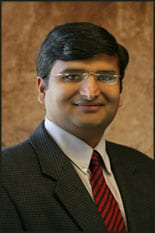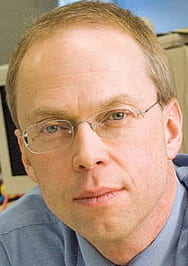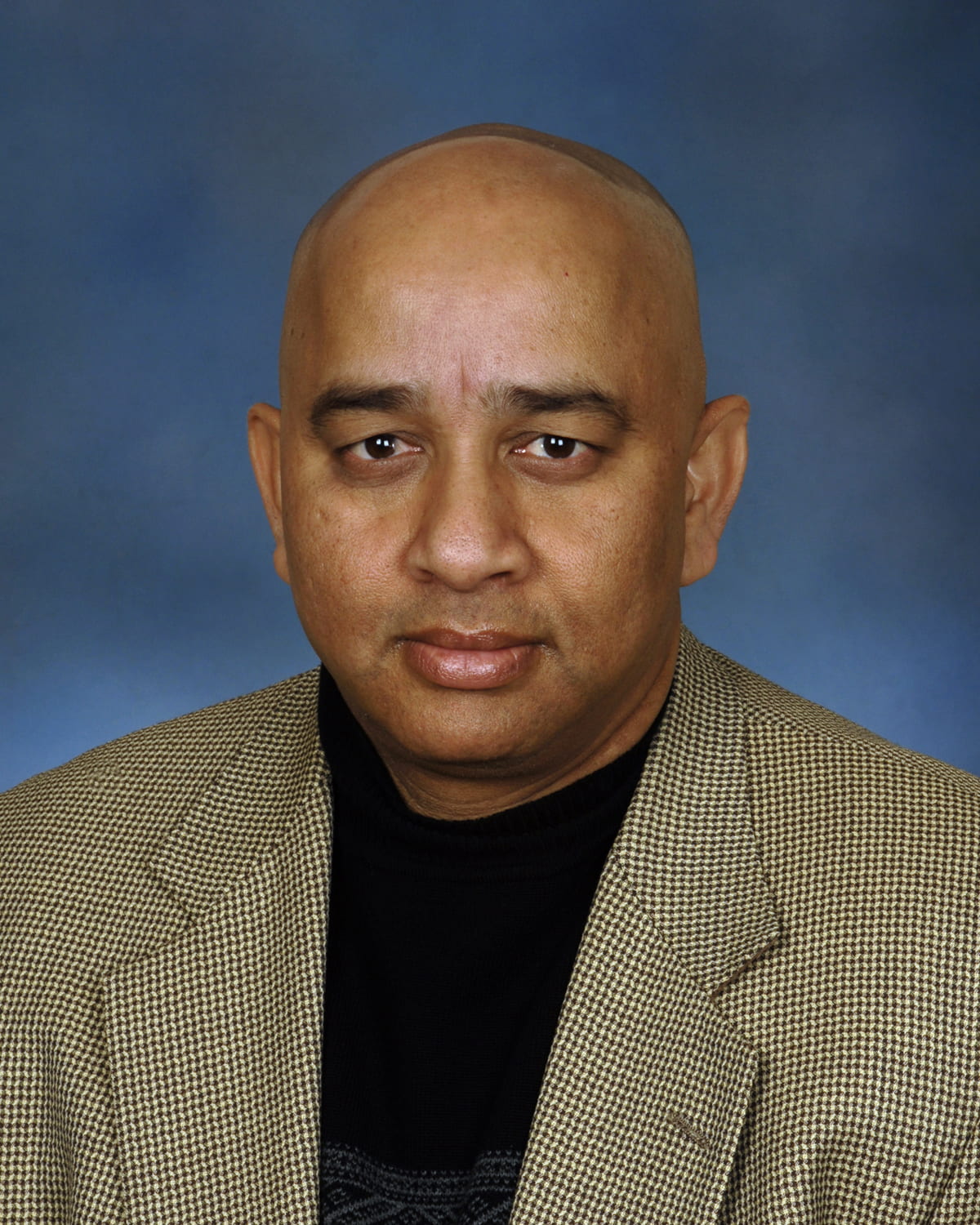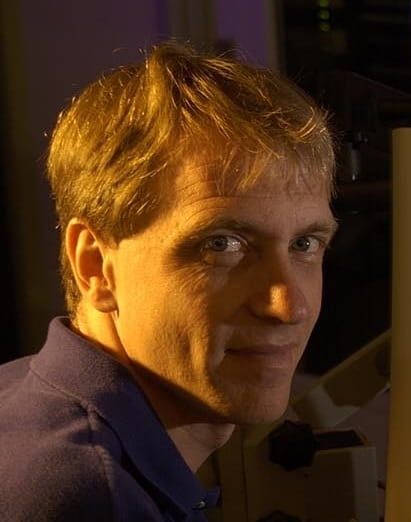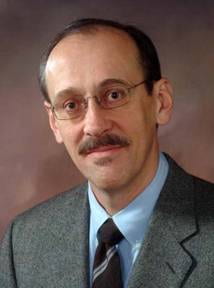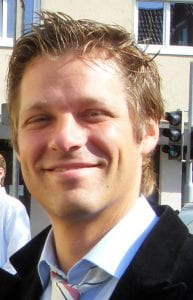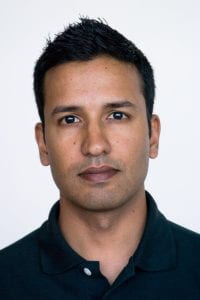IROS 2011 Workshop: Image-Guided Medical Robotic Interventions
Organizers
| Sarthak Misra | Jaydev P. Desai |
| Assistant Professor (Control Engineering) MIRA – Institute of Biomedical Technology and Technical Medicine University of Twente 7500AE Enschede The Netherlands |
Associate Professor Director – RAMS Laboratory Department of Mechanical Engineering University of Maryland College Park, MD 20742 USA |
| Tel: +31-53-489-2704 | Tel: 301-405-4427 |
| Fax: +31-53-489-2223 | Fax: 301-314-9477 |
| Email: s.misra@utwente.nl | Email: jaydev@umd.edu |
| Website: http://www.ce.utwente.nl/msa | Website: http://rams.umd.edu/ |
Abstract
Medical robotic systems strive to make surgical interventions less invasive, less risky for both patients and clinicians, more efficient, less costly, and capable of achieving better patient outcomes. Increasing the targeting accuracy during robot-assisted minimally invasive surgical procedures requires the integration of pre-operative plans and intra-operative control. These planners require the development of models of the surgical instruments and their environment. While the controllers generally rely on image-guided feedback from a clinical imaging system, such as computed tomography (CT), magnetic resonance (MR), or ultrasound images. The focus of this workshop is to bring together researchers that use clinical imaging modalities to plan and control procedures for robot-assisted minimally invasive surgery. In addition, medical robotic systems used in conjunction with clinical imaging modalities will also be discussed.
List of Topics
Pre-operative tool-tissue interaction modeling and planning; Image-guided techniques to control the path of surgical instruments, Methods to integrate pre-operative plans and intra-operative control; MR-compatible systems.
List of Presenters with affiliations
- Prof. Jaydev Desai, University of Maryland
- Presentation Title: Challenges in MRI-guided interventions: From Macro-scale to Meso-scale
- Prof. Pierre Dupont, Children’s Hospital Boston/Harvard Medical School
Presentation Title: Image-based Design of Procedure-specific Robots
- Prof. Paolo Fiorini, University of Verona
| Presentation Title: | Multimodal 3D Data Fusion and Reconstruction for Needle Insertion Guidance in Cryoablation Procedures |
- Prof. Gregory Fischer, Worcester Polytechnic Institute
Presentation Title: A Modular Approach to Rapid Development of MRI Guided Surgical Systems
 |
Biography: Gregory Fischer is a faculty member at Worcester Polytechnic Institute (WPI) in Mechanical Engineering and Robotics Engineering with an appointment in Biomedical Engineering. He received his PhD from Johns Hopkins University in Mechanical Engineering in 2008 where he was part of the NSF Engineering Research Center for Computer Integrated Surgery (ERC-CISST). Dr. Fischer’s primary research focus is on developing enabling technologies for MR-guided surgical interventions including fiber optic sensors, piezoelectric and pneumatic actuators, haptics and teleoperation, modular robot control systems and application testbeds. He is the director of the WPI Automation and Interventional Medicine (AIM) Robotics Research Laboratory (http://aimlab.wpi.edu/). The focus of the research in the AIM Lab is on medical robotics – the link that allows us to enable “closed loop medicine” by using real-time feedback to guide a surgical procedure. In order to take the most advantage of robots in surgery, we work towards integrating real-time medical imaging with the interventional procedure to provide as much information to a surgeon during a procedure as possible and using that information in a way to produce better outcomes. We have developed a modular approach to MRI-compatible robotics including the software, control hardware and mechanical systems and have used this approach to develop robotic systems for image-guided diagnosis and therapy of prostate cancer and for stereotactic neurosurgery where we can perform surgical manipulation under live MR imaging. |
- Prof. Rao Gullapalli, University of Maryland
Presentation Title: Image Guided Interventions: Physics and Clinical Challenges
- Prof. Gregory D. Hager, Johns Hopkins University
Presentation Title: Video Guidance for Human-Machine Collaborative Intervention
- Prof. Robert Howe, Harvard University
Presentation Title: Cathbots: Ultrasound-Guided Beating Heart Surgery
- Dr. Rainer Konietschke, German Aerospace Center – DLR
Presentation Title: Minimally Invasive Surgical Procedures with the DLR MiroSurge Robotic System
- Prof. Ken Masamune, University of Tokyo
Presentation Title: Needle Guidance Robot and Augmented Reality System for On-site MRI Guided Surgery
- Prof. Sarthak Misra, University of Twente
Presentation Title: Predicting Target Motions for Planning of Medical Interventions
- Prof. Philippe Poignet, University of Montpellier 2 – LIRMM
Presentation Title: Robust 3D motion tracking for robotic-assisted beating heart surgery
Tentative Workshop Schedule
15:15 – 15:25:Coffee Break
| 9:00 – 9:10: | Sarthak Misra and Jaydev P. Desai – Introduction to the workshop | ||||||||||||||
| 9:10 – 9:40: | Robert Howe – Cathbots: Ultrasound-Guided Beating Heart Surgery | ||||||||||||||
| 9:40 – 10:10: | Sarthak Misra – Predicting Target Motions for Planning of Medical Interventions | ||||||||||||||
| 10:10 – 10:40: | Gregory D. Hager – Video Guidance for Human-Machine Collaborative Intervention | ||||||||||||||
| 10:40 – 10:55: | Poster Teaser Session – I | ||||||||||||||
|
|||||||||||||||
| 10:55 – 11:05: | Coffee Break | ||||||||||||||
| 11:05 – 11:35 | Poster session – I (Discussion between Poster presenters and Workshop attendees) | ||||||||||||||
| 11:35 – 12:05: | Gregory Fischer – A Modular Approach to Rapid Development of MRI Guided Surgical Systems | ||||||||||||||
| 12:05 – 12:35: | Jaydev P. Desai – Challenges in MRI-guided interventions: From Macro-scale to Meso-scale | ||||||||||||||
| 12:35 – 13:05: | Ken Masamune – Needle Guidance Robot and Augmented Reality System for On-site MRI Guided Surgery | ||||||||||||||
| 13:05 – 14:00: | Lunch | ||||||||||||||
| 14:00 – 14:30: | Philippe Poignet – Robust 3D motion tracking for robotic-assisted beating heart surgery | ||||||||||||||
| 14:30 – 15:00: | Rao Gullapalli | ||||||||||||||
| 15:00 – 15:15: | Poster Teaser session – II
|
||||||||||||||
| 15:25 – 15:55: | Poster session – II (Discussion between Poster presenters and Workshop attendees) | ||||||||||||||
| 15:55 – 16:25: | Pierre Dupont – Image-based Design of Procedure-specific Robots | ||||||||||||||
| 16:25 – 16:55: | Paolo Fiorini – Multimodal 3D Data Fusion and Reconstruction for Needle Insertion Guidance in Cryoablation Procedures | ||||||||||||||
| 16:55 – 17:25: | Rainer Konietschke – Minimally Invasive Surgical Procedures with the DLR MiroSurge Robotic System | ||||||||||||||
| 17:25 – 18:00: | Discussion |
